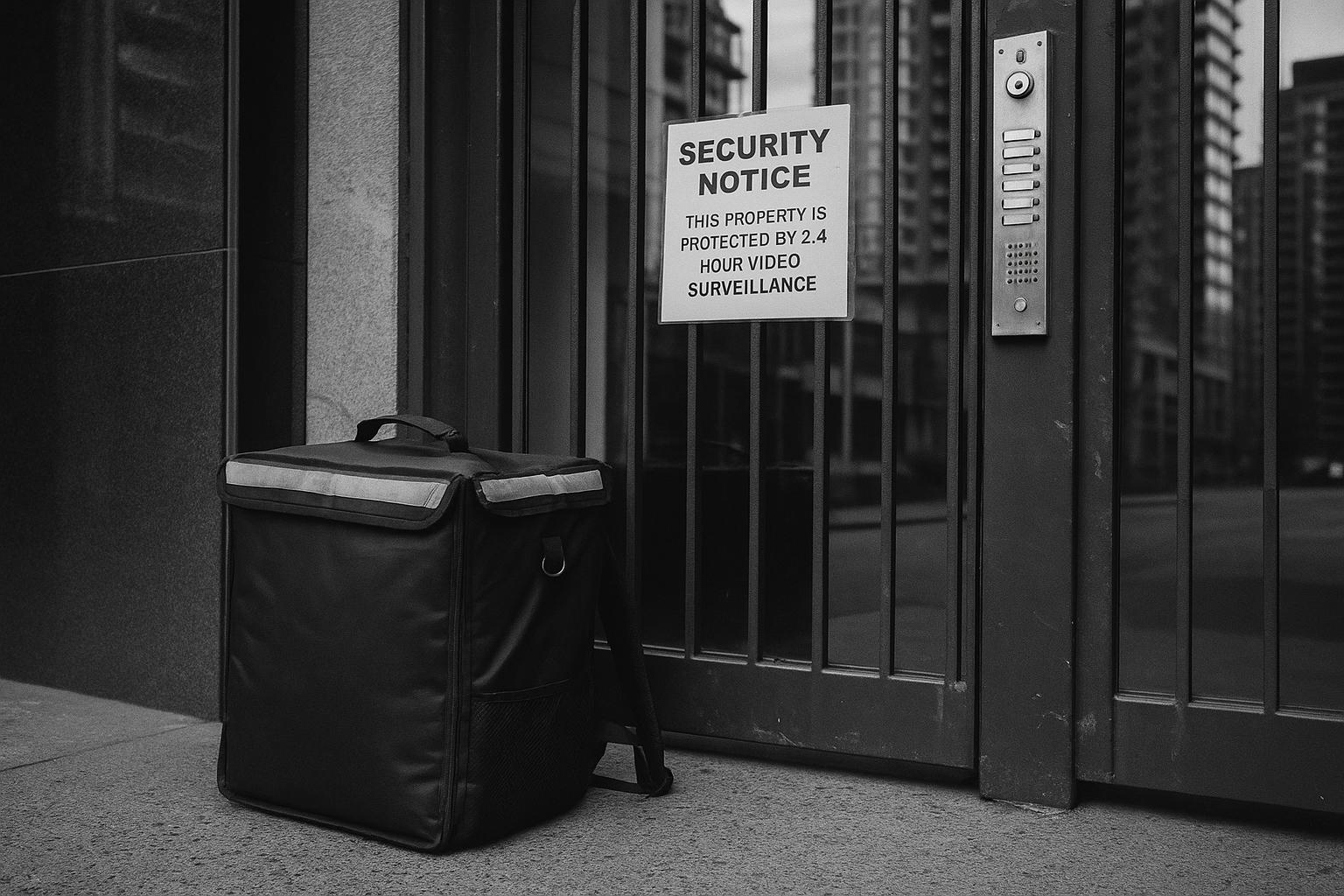Parkgate Aspen, the management company running the Canary Riverside luxury development in east London, has instructed security teams to bar food‑delivery riders from entering blocks, citing safety concerns linked to unrest outside a nearby hotel used to house asylum seekers. According to the security notice sent to residents and reported in the original account, the move — said to be prompted by press reports that some couriers were “undocumented” — will stop riders for firms such as Deliveroo, Just Eat and Uber Eats from being admitted to individual flats, while grocery couriers may be allowed at residents’ discretion.
Parkgate Aspen told The Guardian that the changes were the product of months of planning that were accelerated after protests outside the Britannia International hotel “prompted many residents to request heightened security”. The management company argued that grocery services such as Ocado and Tesco had trained, monitored staff and an “audit trail”, whereas food‑delivery riders did not. While the company said feedback had been “overwhelmingly positive”, some residents described the measure as an abrupt and arbitrary restriction that did not apply to other visitors; one resident told The Guardian the ban “illustrates the pernicious knock‑on effects of this anti‑asylum seeker hysteria”.
The food‑delivery platforms have pushed back on the suggestion that undocumented people are being routinely employed on their services. A Deliveroo spokesperson told The Guardian: “Deliveroo takes a zero‑tolerance approach to illegal working on our platform. If a rider is found to be in breach of the law and their obligations, we will terminate their contract.” Just Eat said the vast majority of its deliveries were made by registered independent couriers with a legal right to work, and Uber Eats pointed to identity and video verification technology, saying it “takes a zero‑tolerance approach to illegal work.” These claims sit alongside recent government efforts to tighten checks on platforms’ workforces.
In late June ministers announced a push to bolster right‑to‑work checks across the sector, and the Home Office said delivery firms had agreed to increase facial verification, fraud‑detection and registration processes within set timeframes. The government framed the measures as a response to account‑sharing and “substitution” — where someone other than the registered account holder completes shifts — and urged ongoing cooperation between platforms and enforcement bodies to protect workers and consumers.
The security clampdown around Canary Wharf comes against a backdrop of stepped‑up enforcement activity. Reuters reported that immigration enforcement carried out a week‑long operation in late July that led to 280 arrests and the temporary stopping of nearly 1,800 people, with vehicles seized and civil penalties issued to some businesses. At the same time the Home Office has been reported to share data, including the locations of asylum accommodation, with delivery platforms to help identify suspected illegal working and quickly suspend suspect accounts — a collaboration that supporters say helps prevent exploitation but that critics warn may risk stigmatising vulnerable people.
Some of the social media claims that fuelled local anger have been debunked. The Independent obtained Metropolitan Police comment that footage showing people leaving the Britannia hotel on mopeds depicted hotel staff, not residents, and that officers escorted a courier merely because they had been surrounded and intimidated while delivering to the address; police said there was no evidence the individual was working illegally. The Guardian and other reports also note the protests at the hotel have been amplified by far‑right activists on social networks, and that policing actions have included arrests and dispersal orders for those accused of harassing occupants.
The episode encapsulates a wider tension between immediate security anxieties in gated developments and the risk of collective measures that could disproportionately affect marginalised people. Parkgate Aspen presents its policy as a precaution for residents; the delivery firms and recent government statements point to technical fixes and verification processes intended to reduce illegal working and account misuse. Critics argue that blanket bans risk scapegoating couriers and normalising exclusionary practices at a time when enforcement and political rhetoric around migration are heightened. Finding a solution that addresses residents’ safety concerns while avoiding discrimination will require clearer evidence, transparent processes and careful oversight of any data‑sharing or verification schemes.
📌 Reference Map:
##Reference Map:
- Paragraph 1 – [1], [2]
- Paragraph 2 – [1]
- Paragraph 3 – [1], [3], [4]
- Paragraph 4 – [3], [4], [7]
- Paragraph 5 – [5], [4]
- Paragraph 6 – [6], [1]
- Paragraph 7 – [1], [3], [4], [7]
Source: Noah Wire Services
